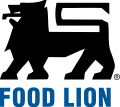Seafood Sustainability
Food Lion Sustainable Seafood Commitment
Environmental Integrity
Food Lion is committed to sourcing only seafood from fisheries and farms that are well managed to ensure that fish populations remain healthy and fishing and farming methods have a minimal environmental and social impact. All seafood we sell, whether it’s fresh, frozen, or canned, must meet important sustainability criteria.
Human Welfare
Food Lion is deeply concerned about the well-being of the men and women who contribute to bringing seafood to our stores. From harvesting to processing and distribution, we are committed to ensuring ethical recruitment and conditions of labor. This is a highly complex issue and spans many of our seafood supply chains. We are actively engaged in bringing together numerous stakeholders, NGOs, and other private sector companies to collaboratively address unsatisfactory human welfare conditions, the most egregious being slavery at sea.
We will not knowingly sell seafood from illegal, unreported, or unregulated (IUU) sources.
Environmental Sustainability Vetting Criteria
Wild-Caught Seafood Criteria:
- Certified against a GSSI-benchmarked standard (e.g., Marine Stewardship Council); OR
- In improvement and sourced from a credible Fishery Improvement Project (FIP) or in assessment to be certified (all FIPs must be committed to posting on FisheryProgress.org within a timeframe and traceable to a participating company or governmental body).
- Assessed as low risk by the Gulf of Maine Research Institute (GMRI). Medium risk sources must present an acceptable time-bound plan to reduce the risk. Low risk sources are managed by competent authorities and have management plans in place that incorporate a science-based approach to ensure sustainability. These management plans consist of the following tenets:
- If stock sizes are below management target levels, whether due to natural or man-made causes, management plans are established that enable rebuilding within a specified timeframe.
- Sufficient data exist to determine appropriate harvest levels or practices.
- Monitoring and compliance measures are in place to ensure that harvest levels are maintained within acceptable limits.
- Enforcement exists to ensure that harvesters follow regulations, and to prevent illegal practices and unreported harvest.
Farm-Raised Seafood Criteria:
- Farm-level certification against a GSSI-benchmarked standard (e.g., Global Aquaculture Alliance Best Aquaculture Practices); OR
- In improvement and sourced from a credible Aquaculture Improvement Project (AIP); OR
- In assessment and sourced from a farm that is actively working towards certification.
Special Considerations
- In addition to the criteria outlined above, canned tuna must comply with the International Sustainable Seafood Foundation (ISSF) sustainability conservation measures, including those adopted in collaboration with relevant tuna Regional Fishery Management Organizations (RFMO) and be sourced from vessels that are registered on the Pro-active Vessel Register (PVR). All black-listed vessels will be avoided. All exceptions to this will be reviewed on a case-by-case basis.
- All shrimp from Thailand is encouraged to be sourced from Seafood Task Force members and offer traceability back to vessel.
- Once a level of sustainability for a given product is achieved, sourcing agents may not revert to a lower level unless the more sustainable source is no longer available.
Human Welfare Initiatives
Food Lion is a member of the Seafood Taskforce and a signatory to the World Economic Forum Tuna Declaration. As such, we have committed to identifying and mitigating social issues in Thai tuna and shrimp supply chains. Specifically, we are working with our suppliers to accomplish traceability to the harvesting vessel, and we will be implementing social compliance audits at each node along the supply chain in partnership with the Sustainable Supply Chain Initiative (SSCI). We intend to implement worker voice and grievance mechanisms along our supply chains and work with our suppliers to identify recruitment agencies and require the adoption of best practices. Through the Tuna Declaration, we are committed to traceability to the vessel for all fresh, frozen, and canned tuna from every country.
Traceability Criteria
Food Lion partners with Trace Register to document source data for all seafood products. Data entered into Trace Register is automatically analyzed against vetted sources to ensure ongoing compliance with the sustainability policy.
At a minimum, suppliers must provide the following information:
- Latin and common name of the species
- Direct supplier name
- For fish caught at sea: FAO zone, catching country, and catch method
- For fish caught in freshwater: body of freshwater and catching country
- For aquaculture: country of origin, farm name and location, and certification number





